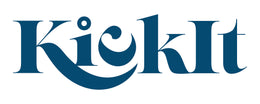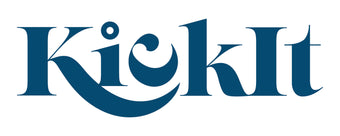Cancer. It's a word that can strike fear into the hearts of anyone. But for some, it becomes a catalyst for incredible change. Today, we meet Ellyn Winters-Robinson, a breast cancer survivor who refused to let her diagnosis define her.
Ellyn is not only the author of the insightful book, "Flat Please," but also the visionary founder of AskEllyn.ai. This revolutionary conversational AI tool is changing the game for newly diagnosed women. No longer must they face the overwhelming world of breast cancer alone. AskEllyn becomes their friend, confidante, and source of reliable information throughout their journey.
Curious to hear Ellyn's story and the inspiration behind AskEllyn.ai? Dive right in to our exclusive interview with the "live flesh and blood version" of this remarkable woman! (Don't worry, she's way cooler than a computer program!)

Questions focused on your personal experience:
1. Can you share your personal journey with breast cancer, including the diagnosis, treatment, and decision to opt for a mastectomy without reconstruction?
I was diagnosed two and a half years ago on March 10th, 2022. It still feels surreal to me. I was very healthy, led a healthy lifestyle, and had no family history of breast cancer. My last mammogram, two years prior was “unremarkable.” And yet, I was told I had three tumors in my left breast, one measuring 4.5 CM. A mastectomy was recommended and I opted to have both breasts removed for peace of mind and symmetry. After my surgery, it was determined that I had microscopic cancer in two of my left side lymph nodes, so that meant 12 weeks of chemotherapy, followed by 15 rounds of radiation. All told it was 256 days from diagnosis to end of treatment.
2. What factors influenced your decision to not undergo breast reconstruction? Was it a personal choice, a medical recommendation, or a combination of both?
I did a lot of talking to other women who had been on a breast cancer journey after I was diagnosed to learn from their experiences. On one call with a friend of mine from Boston, she asked if I had considered going flat. She had breast reconstruction with implants and hers were beginning to leak and fail. She said she was thinking about staying flat after having them removed. It piqued my curiosity and the idea of having only one surgery was appealing to me. Breast mound reconstruction requires multiple surgeries and there can be complications. I just wanted to get on with my life. I discussed the idea of staying flat with my surgeon and he was not opposed to it, and had performed the procedure before. He did an amazing job. I am perfectly smooth and flat. And honestly, I have no regrets about my decision.
3. How did you feel about your body and self-image after the mastectomy? What were the challenges you faced, and how did you overcome them?
I was a D cup before and never really in love with my breasts to be honest. Even when I considered breast reconstruction I planned to go much smaller. Before my surgery and after I made the decision to go flat, I did a lot of visualization and watched videos of women who shared their stories of atheistic flat closure. So I had a good idea of what I would look like. I remember when I took my bandages off for the first time, I was honestly not sad, but rather impressed with the very neat job my surgeon did! I have never looked backward. The universe decided I needed a new body and I have accepted that. I never disguise or hide that I am flat. In fact I wear backless dresses now, spaghetti straps, plunging necklines and halter necks, things I could never wear before without a bra. I remind everyone that runway models are flat like me and are regarded as the epitome of beauty. I just happen to be man-made!
Questions about "Flat Please":
4. What inspired you to write "Flat Please"? What was your goal in sharing your story and the stories of other women who have chosen not to have reconstruction?
I wanted to share my story and also package up resources for other women who would find themselves on a breast cancer journey. You feel very alone when you are diagnosed. Talking to other women helped me so much and the wisdom they shared was invaluable. So I wanted to do the same for others. I entitled it Flat Please because it’s part of my story and I believe flat should be an option but it is a story that resonates with anyone diagnosed and on a breast cancer journey.
5. How has the book been received by readers? Have you encountered any misconceptions or stereotypes about women who choose not to have reconstruction?
People who read my book say it feels like I am walking right beside them. They also share it with their spouse and friends, because it helps others understand what a person is going through when diagnosed. It’s exactly what I hoped for when I wrote it, that people would have a hand to hold so they didn’t feel alone.
I certainly had some questions from friends and family about my decision to go flat prior to my surgery, but they have been very accepting of my decision. I certainly don’t hide that I’m flat but honestly I don’t think anyone ever notices and if they do, that’s their problem not mine. There is a bias in society toward breasts and many women feel pressured and face questions from even their surgeons about opting out of breast mound reconstruction. In fact, any of the questions I’ve gotten have come from my doctors who seem puzzled by my decision. I’d like that attitude to change. My body, my decision. That’s why I am so vocal and open about being flat, and even ended up topless in People Magazine. I want women to know that I feel just as feminine, if not more so without breasts.
6. What do you think are the most important takeaways for women considering a mastectomy who might be unsure about reconstruction?
It is an intensely personal decision and no decision is the wrong decision. I would recommend doing your homework as soon as possible, because time is not on your side. Surgery to remove cancer has to happen and it can happen quickly. In addition to getting advice from your surgeon, talk to other women who have opted for implants or DIEP flap or aesthetic flat closure and learn from their experiences. How many surgeries, how long were the surgeries, what was healing and recovery like, did they have complications, are they happy with their decision, what would they do differently? Surgeons make it all sound easy because this is routine stuff for them, but it’s not easy for the woman, believe me.
Questions about the AI solution:
7. Can you explain the concept behind the askellyn.ai solution you're developing? How do you envision it helping women who have questions about their mastectomy and recovery?
AskEllyn is essentially my book brought to life. She’s the world’s first conversational AI companion for those on the breast cancer journey. She’s non medical, completely private, will always be free and speaks most languages. The experience is like talking to a knowledgeable friend who can offer up empathy and lived experience. She can help the woman going through a diagnosis, but she can also support friends, spouses, children — they too are hurting and unsure of how to help. Someone said to me the other day AskEllyn is completely different from other chatbots because she has a soul. I loved hearing that.
8. What kind of information will AskEllyn be able to provide? Will it be able to offer advice or support on topics such as body image or relationships?
She is a true AI so she leverages Open AI’s knowledge of the world blended with my lived experience with breast cancer. So you can literally ask her anything! She’s helped friends curate gift baskets for someone diagnosed, supported someone as they were removing their bandages and seeing their scars for the first time — important stuff. But I also had a long chat with her about going to Italy recently. She’ll find some way to loop the conversation back to breast cancer, but it’s quite entertaining to just chat with her.
9. How do you see AskEllyn fitting into the broader landscape of support for women with breast cancer?
Oh my gosh, my dream is that no one diagnosed walks alone. I won’t stop until every woman diagnosed worldwide has access to AskEllyn to provide them with emotional support and companionship. I’m just scratching the surface right now but somehow, someway I will make it happen
Final question:
10. What advice would you give to other women who are facing a breast cancer diagnosis and considering their treatment options?
A few things: Trust your doctors and let them drive. They spend their lives doing this work and will help you get through and past this. Don’t go to Google. It is not your friend. Talk to AskEllyn and get support from her. And stay healthy and exercise (yes even during chemotherapy) - it will help you manage side effects and recover faster. And it might feel like the worst news in the world, but a cancer diagnosis also shows you how resilient and tough you are as a human, and you will meet the very best people on your journey. So hang in there, we’re here to hold your hand.
For more information about KickIt and AskEllyn, visit AskEllyn.ai's latest blog post - KickIt's Post-Surgery PJ's are the Cat's Pajamas


